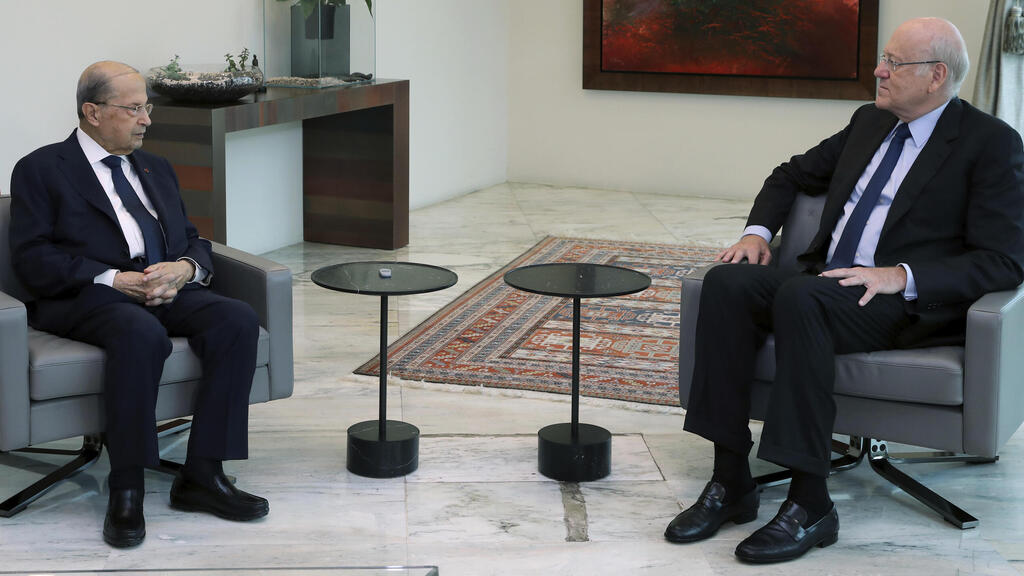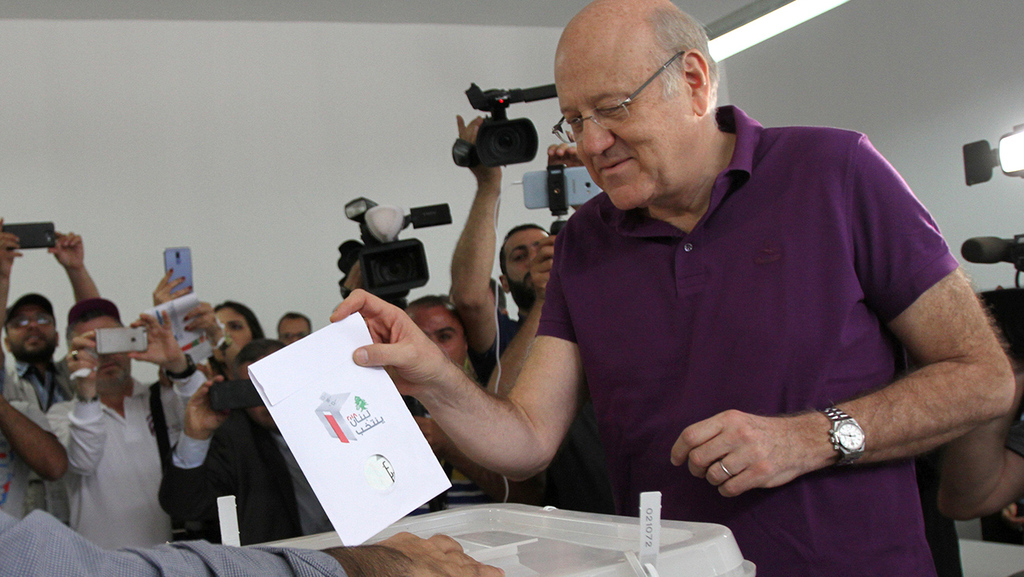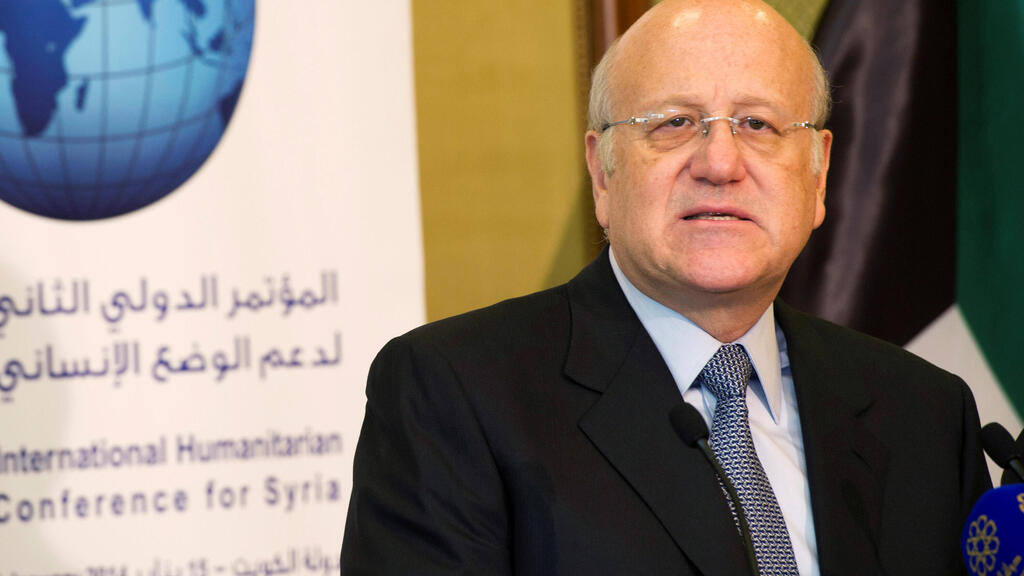Getting your Trinity Audio player ready...
Lebanon's president appointed a candidate backed by the Hezbollah terror group as the next premier-designate Monday, after Saad Hariri earlier this month gave up attempts to form a cabinet amid an unprecedented financial meltdown roiling the country.
The appointment of Najib Mikati, who served as prime minister in the past, came after he secured the majority of lawmakers' votes in binding consultations President Michel Aoun held with members of parliament.
One of the richest men in Lebanon, Mikati became a favorite for the post after he was endorsed by most of Lebanon's political parties including the powerful, Iran-backed Hezbollah and the other major Shiite party, Amal, led by Parliament Speaker Nabih Berri. Mikati was also endorsed by former Sunni prime ministers including Hariri, who abandoned efforts to form a government after failing to agree with Aoun on the cabinet's makeup.
The political deadlock, driven by a power struggle between Aoun and Hariri over constitutional rights and powers of the president and prime minister, has worsened a crippling economic and financial crisis.
It is not clear whether Mikati "widely considered an extension of the political class that brought the country to bankruptcy” would be able to break the year-long impasse over the formation of a new government. He faces Christian opposition, including from Aoun's own bloc, now led by his son-in-law Gebran Bassil, which did not name anyone as a candidate for prime minister.
3 View gallery


Lebanese President Michel Aoun, left, meets with former Lebanese Prime Minister Najib Mikati, at the presidential palace, in Baabda, east of Beirut, Lebanon
(Photo: AP)
Lebanon's economic and financial crisis began in late 2019 and has steadily worsened since then. Poverty has soared in the past several months as the situation spirals out of control, with dire shortages of medicines, fuel and electricity. The currency has lost around 90% of its value to the dollar, driving hyperinflation.
Mikati's designation would be the third so far since the current caretaker government headed by Hassan Diab resigned in the wake of the massive explosion at Beirut's port last August. Since then, Diab's cabinet has acted only in a caretaker capacity, compounding Lebanon's paralysis further.
The first to try to form a government was Lebanon's former ambassador to Germany, Mustafa Adib, who resigned last September, nearly a month after being designated prime minister. Hariri was appointed next and stepped down after 10 months.
Any new government faces the monumental task of undertaking critical needed reforms as well as resuming talks with the International Monetary Fund for a rescue package. The new cabinet is also expected to oversee general elections scheduled for next year.
International calls have mounted for Lebanese leaders to form a new government, but the international community has refused to help Lebanon financially before wide reforms are implemented to fight widespread corruption and mismanagement.
The investigation into the Aug. 4 port explosion "triggered by the detonation of hundreds of thousands of tons of improperly stored ammonium nitrate” has exacerbated tensions in the small nation amid accusations of political meddling in the judiciary's work. More than 200 people were killed and thousands injured in the blast, which defaced parts of the city.
Mikati, a Sunni billionaire from the northern city of Tripoli, served as prime minister in 2005 and from 2011 to 2013, when he resigned at the height of the Syrian war after a two-year stint in a government dominated by Hezbollah and its allies.
He founded the telecommunications company Investcom with his brother Taha in the 1980s and sold it in 2006 to South Africa's MTN Group for $5.5 billion.
Mikati is supported by France, the former colonial power in Lebanon, and also the United States.



